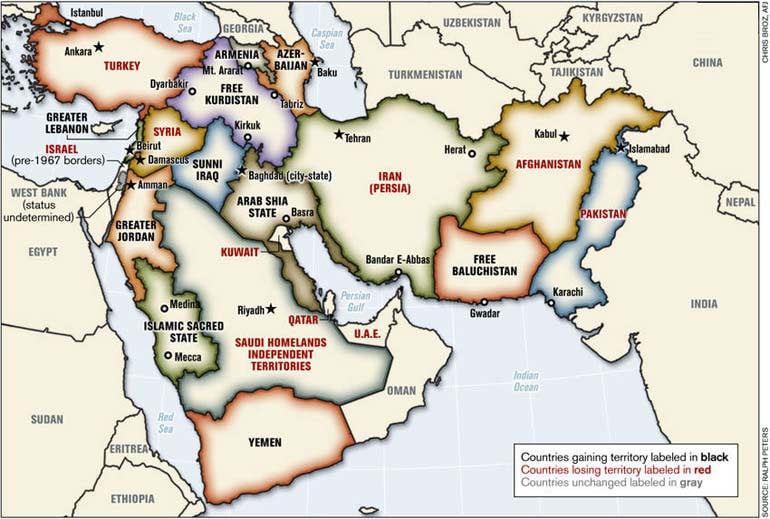High_Gravity
Belligerent Drunk
Power Struggles in Baghdad and Beyond Mean Opportunities for Iraqs Kurds

Read more: Power Struggles in Baghdad and Beyond Mean Opportunities for Iraq’s Kurds | Global Spin | TIME.com

The thriving Kurdish mini-state in northern Iraq is a monument to the ability of the nationalist Kurdish-Iraqi leadership to parlay the conflict between more powerful geopolitical forces around them to maximum advantage. And the escalating power struggle in Baghdad, combined with the regional conflict between Iran, Turkey and the Gulf Arab states being played out in Syria, may offer the Kurdish leadership in Erbil new opportunities to strengthen foundations for independence from Iraq. It may be a perilous game of temporary alliances of convenience among forces that dont necessarily share a common vision, but thats precisely the sort of political balancing act that created the Kurdish polity in northern Iraq, which already has many of the attributes of independence such as its own flag, administration and security forces and is seeking to expand its independent economic base.
The power struggle in Baghdad has escalated to alarming proportions in the months since the last U.S. troops withdrew in December 2011, with Prime Minister Nouri al-Maliki eschewing the principle of a unity government that gives all stakeholders a share of power and instead amassing power in his own hands. Even the radical Shiite cleric Moqtada al-Sadr, whose support was critical to getting Maliki reelected, has taken to referring to the Prime Minister as the dictator. Sunni insurgent violence continues, while Sunni political leaders have been hounded out of government by Maliki. Recent days have seen him huddling with his key regional allies in Tehran, as he steps up a war of words and threats with Turkeys Prime Minister Recep Tayyip Erdogan, whom he accuses of meddling in Iraqs affairs. Turkey makes no secret of its support for Iraqs Sunni political bloc, Iraqiyya, and has castigated Maliki for pursuing a sectarian and egocentric style of ruling. Ankara has recently played host to fugitive Iraqi Sunni leader Tarek al-Hashemi, who was forced to flee Baghdad to escape a criminal prosecution his supporters see as a trumped up charge designed to hobble the Sunni political leadership. Hashemi fled first to Erbil, capital of Iraqs Kurdistan Regional Government (KRG), whose terrain the Iraqi security forces are not authorized to enter.
(MORE: What the U.S. Leaves Behind: An Unstable, Vulnerable Iraq)
As dramatic as the language and gestures of some of the key players may be, however, patronage politics has entrenched a certain pragmatism in Iraqs political class that shows no sign of evaporating in a headlong rush into civil war. Still, every new breakdown and episode of brinkmanship brings opportunities to press the Kurdish cause.
The Kurds, who represent some 20% of Iraqs population, maintained good relations with Iran before Saddam Husseins ouster, and have typically been courted in post-Saddam politics when the major Shiite and Sunni political players have needed them to tip the balance against the other. The de facto casting vote provided by their share of Iraqs proportional representation parliament has allowed the leaders of Kurdistans main parties the Patriotic Union of Kurdistan of Jalal Talabani, who serves as President of Iraq, and the Kurdistan Democratic Party of Masoud Barzani, who holds the position of Prime Minister in the KRG to extract more concessions on autonomy and territorial control than Iraqs Arab politicians would otherwise offer.
Read more: Power Struggles in Baghdad and Beyond Mean Opportunities for Iraq’s Kurds | Global Spin | TIME.com



